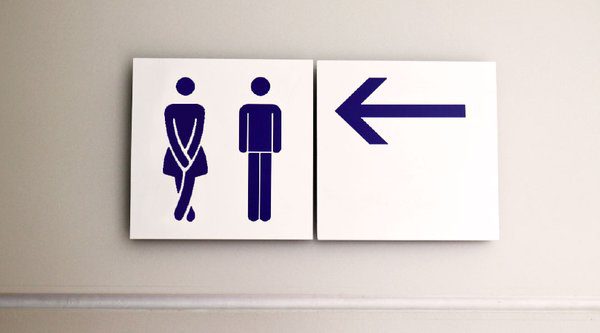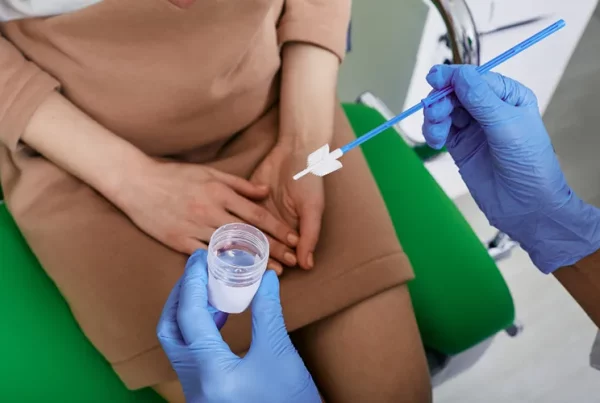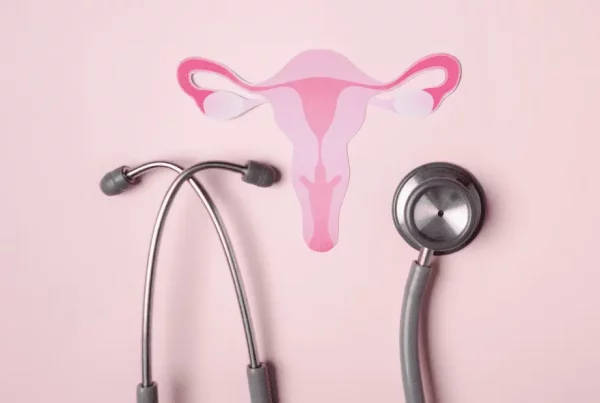Urinary incontinence is often an issue that people find embarrassing and shy to talk about, regardless of age or gender. While women are more open to sharing, urine leak problems are hardly something one can abruptly mention during a conversation with friends or family. It is also a medical problem that albeit common, women find hard to seek professional help for, as many deny the possibility that they could be suffering from incontinence due to the social stigma attached to it.
This attitude of dismissing the problem as something trivial happens more often than not in younger women as the general perception is that incontinence is a condition that happens in older women (then again, is it really true that younger women are exempt from this problem?)
To help shed some light on the topic of urinary incontinence, we got Dr James Lee, a urogynaecologist from Astra Women’s Specialist, to address 4 common myths women have regarding urinary incontinence.
What does a Urogynaecologist do?
A urogynaecologist is a gynaecologist who is also trained in the sub-speciality of urology, which includes managing the female organ and tissues in the pelvic region. Apart from gynaecological conditions, a urogynaecologist also treats pelvic floor conditions such as urinary incontinence and pelvic organ prolapse.
MYTH 1: I do not have urinary incontinence, just a small bladder.
Dr James Lee: It is true that urinary incontinence is different from having a small bladder. Incontinence is the involuntary or uncontrolled leak of urine even in the absence of the feeling to urinate, for example, urine leakages that happen with a cough or sneeze (also known as stress incontinence). A small bladder, on the other hand, leads to frequency i.e. frequenting the bathroom more than normal due to the inability to hold the bladder for long.
While the two conditions are different, urge incontinence can result from a small bladder.
What is urge incontinence?
Urge incontinence is the leaking of urine when one is unable to hold the bladder in the event of a strong and sudden urge to urinate. To avoid leaking urine in this situation, ladies with a small bladder often visit the bathroom frequently.
Therefore, while the two conditions are different, having a small bladder may be a mode of adaptation by your body to prevent incidences of uncontrolled urine leakage, which could ultimately lead to urinary incontinence much later. Therefore, it is recommended to see a specialist if you notice either of such symptoms.
MYTH 2: Urinary incontinence only happens to older ladies.
Dr James Lee: It is true that urinary incontinence happens more often in ladies aged 60 and above. As we age, our bladder and our pelvic floor muscles become weaker, especially in women who have experienced pregnancy, childbirth or menopause, ultimately leading to urinary incontinence. Other factors that are more prevalent in older women, such as underlying medical conditions, constipation and urinary tract infection, can also lead to urinary incontinence.
While urinary incontinence may be preeminent in ladies from their late forties to early fifties, it is not true that urinary incontinence only happens to older ladies. There are women who are younger, sometimes in their teens but more often in their early thirties and mid-thirties who likewise complain about urinary incontinence.
Younger ladies who are in their second or last trimester of pregnancy may also experience urinary incontinence as their body changes. While this is usually temporary, some women do experience a relapse after pregnancy. Find out more about urinary incontinence during and after pregnancy here.
MYTH 3: My urine leaks only happen once in a while, and it’s only a slight leakage; this problem won’t worsen.
Dr James Lee: While a small problem such as a slight urine leak may seem easy to ignore, depending on the cause of the incontinence, the condition may worsen to a point where it affects everyday life. Incontinence can start off infrequently and gradually progress from leaking urine once or twice a week to every day.
Due to social stigmas, many women try different ways to conceal their incontinence woes, such as using incontinence pads to catch urine leaks. Others who experience more severe incontinence might limit social activities or going out. All in all, the quality of life is impacted.
MYTH 4: I have to live with urinary incontinence, nothing much can be done.
Dr James Lee: It is not true that nothing can be done about urinary incontinence. There are multiple types of therapy available, depending on how severe the incontinence is.
For a start, physical therapy exercises such as Kegels and pelvic floor exercises can help strengthen the pelvic floor muscles. These can be done under the guidance of a therapist or as instructed by your gynaecologist.
If physical therapy does not help improve the situation, the next options include medications and/or non-invasive vaginal laser treatment. Both therapies have been used to help women with mild to moderate urinary incontinence.
When the condition becomes more severe and significantly affects one’s quality of life, surgery e.g. colpo-suspension surgery and vaginal tape, might be recommended. While most women might be quick to shun the idea of surgery, an important point to note is that advancements in surgical technology have made these procedures much less disruptive and reduced recovery time significantly.
An experienced urogynaecologist will be able to assist you in determining the most suitable treatment option based on your symptoms. But most importantly, always remember that help is available; incontinence need not be a problem that you have to live with.
Have more questions? Drop them in our form and we’ll ask them for you!
Leave your questions here: https://bit.ly/AUAincontinence
Questions will be answered on our instagram page @smgwomenshealth
Dr Lee’s Place of Practice
Astra Women’s Specialists
38 Irrawaddy Road #05-21/22
Mount Elizabeth Novena Specialist Centre
Singapore 329563
Tel: +65 6258 5530
Astra Women’s Specialists
681 Punggol Drive
Oasis Terraces, #03-11
Singapore 820681
Tel: +65 6258 5530







